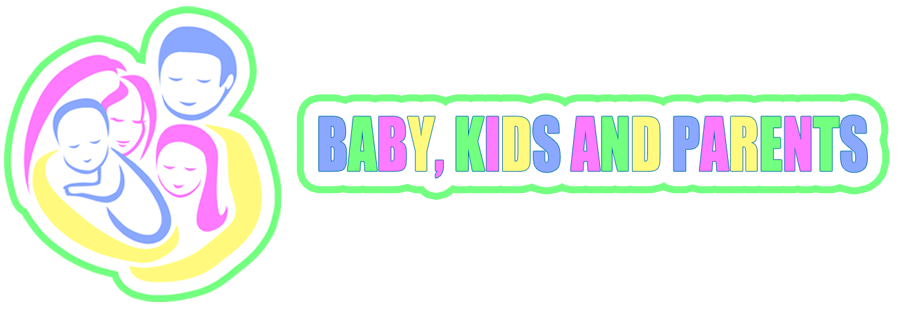
Your body goes through so many changes at once, that it is sometimes difficult to know what is normal and expected and what is worrying. Here's a little help... Read what is "harmless" and what may be cause for concern and alarm to tell your doctor.
Bleeding
Occasionally spotting vaginal bleeding during pregnancy is not uncommon, but this symptom should not be ignored. Tell your doctor about even the smallest bleeding. It is important to keep up with all the changes that are happening to you, to be able to take care of your health and the baby's health.
Slight, intermittent bleeding is possible after sexual intercourse or gynecological examination. This bleeding is Not dangerous, because it usually indicates the natural changes in the cervix (the cervix), or its sensitivity. It can also occur in the period when it was supposed to appear menstruation.
If bleeding persists, especially if it is accompanied by abdominal pain, or becomes abundant - should immediately contact your doctor! These may be signs of imminent miscarriage, ectopic pregnancy, or problems with the placenta (placenta previa - low located placenta or placenta abruption - early separation of the placenta). In any of these scenarios, as soon as a woman gets medical help, the better.
Extremely vomiting
Continuous emptying of the stomach is really difficult to tolerate. While many moms with relief says goodbye to nausea after the first trimester, the other during the whole pregnancy suffer from excessive sensitivity to food, pain, nausea and vomiting. Worst pass those whose "inability" to keep anything in the stomach, even liquid, becomes threatening problem, especially if the longer it lasts.
Hyperemesis gravidarum is the medical term for excessive vomiting in pregnancy. This condition leads to dehydration, fatigue, permanent weight loss and malnutrition. In some cases, require hospitalization, to help pregnant women to recover.
Cramps
Some woman are happy for several months of relief from painful menstrual cramps,but for some women there is no respite, even when the uterus has its own little "inhabitants". Gases, bloating and constipation - frequent complaints in pregnancy, may lead to unpleasant cramps. Also, after sex can occur like menstrual cramps, that sometimes can last for several hours after intercourse. Many moms feel discomfort and pain in the stomach below the uterus, especially during physical activity. While this may limit the normal way of life, it's harmless (ligaments are stretched to support the weight of the uterus that grows).
The sudden appearance of high intensity cramps, pain in the lower abdomen on one side only (possible sign of ectopic pregnancy), abdominal pain that lasts longer or followed by some of the symptoms, such as chills, fever, nausea, vomiting or bleeding - can be a sign of something serious, so be sure to contact your doctor.
Excessive discharge
Increased vaginal discharge during pregnancy can be very unpleasant, but it is not a cause for concern (hormones and increased blood flow to the genitals change the quantity of the vaginal discharge). However, consult your doctor if you have a whitish discharge that causes itching or burning, because it indicates to fungal infection.
Vaginal discharge with odorous with colors like yellow, green or gray, indicates a vaginal infection. The sign for "alarm" are watery secretions, mucus, before 37 weeks of pregnancy, mixed with blood (even with a little pink or brown blood), because it may be a sign of premature labor.
The fluid from the vagina
Little leakage of urine is harmless. But what is worrying is if you start losing amniotic fluid, and you are not near to the time of birth. Early loss of amniotic fluid can result in a risk for your baby.
If you notice a trickle of clear liquid that flows out of the vagina constantly, or there is a stronger "flooding" of amniotic fluid, immediately call a doctor because it is possible caution to start delivery.
Severe headache
If you have not had a headache, and occurred in pregnancy, or if they become more frequent or severe, be sure to tell your doctor.
At the end of pregnancy, severe headache that lasts longer, especially if it is accompanied by vision impairment (blurred vision, "glint" in front of the eyes, double vision), dizziness, pain in the upper abdomen, swelling of the face or hands - may be indicative of pre-eclampsia, a condition dangerous for both the mother and the fetus. It is necessary medical help!
Do not use medicine for headaches!
It is very important not to take painkillers - even those that are obtained on prescription, or those that can be obtained without a prescription. Only your doctor can tell you which medicine is approved. Given that drugs that effectively relieves headache for you are "inaccessible", look for non-medical solutions. Showering with little colder water, cold compresses to the neck, rest, relaxation and massage can make a miracle. And try to avoid stress!
Dizziness
Occasionally it can be caused by changes in the circulating blood and the blood pressure fluctuations. Try to warn it, by laying on your left side before getting up from bed. Lying on the back leads to increased pressure of the uterus on the large abdominal vein, which could cause pressure drop and a reduction in heart rate, and thus cause the dizziness.
It is also important to take enough food and enough liquid (to not fall blood sugar levels and keep you hydrated), and avoid prolonged standing, suddenly getting up and changing body position, jerky movements. If, despite the measures you take, often feel malaise, fatigue or dizziness, consult your doctor (maybe's anemia). It is dangerous if dizziness is accompanied with severe headache, difficulty speaking, dizziness, palpitations and tinnitus.
Early contractions
It is important to know the difference between "true" and "false" contractions. The true contractions - after the 37th week of pregnancy, occurring at regular intervals, with increasing intensity and frequency (five to ten minutes). They last up to one minute, and are not reducing by changing the position or resting. Preparatory or Braxton-Hycks contractions are rhythmic, but appear sporadically, with longer intervals, they are not enhancing, and take less time. They also can be reduced by changing the position or rest. But if you still feel severe pain in the abdomen, lower back or pelvis, especially if you experience vaginal bleeding - immediately go to the doctor. Maybe it's early labor.

